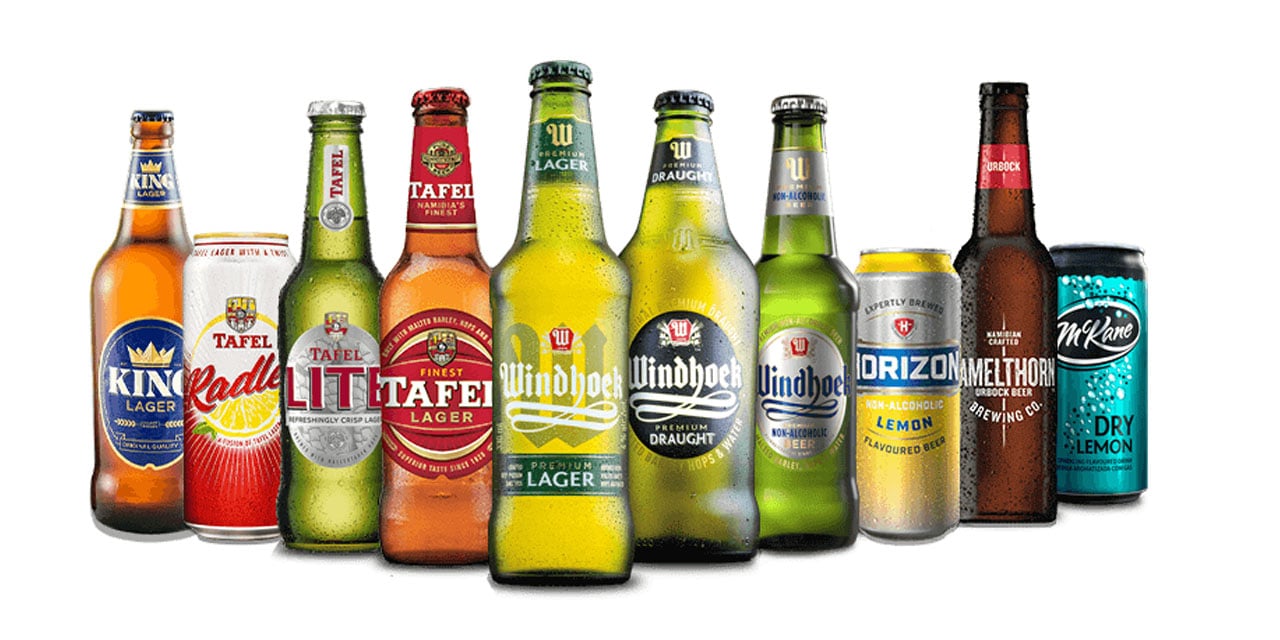CHAMWE KAIRA
The biggest ‘beer concoction’ in Namibian history has been ‘mixed.’ The Competition Commission of South Africa and the Namibian Competition Commission have both approved the Heineken takeover of Namibian Breweries and certain Distell operations.
Sipho Ngwema, Head of Communications at the Competition Commission of South Africa says the commission has recommended that the Competition Tribunal approves with conditions the proposed transaction whereby the Heineken Group through Sunside Acquisitions Proprietary Limited (Newco) acquires a controlling interest in Namibian Breweries Investment Holdings Limited (NIH) and the flavoured alcoholic beverages (FABs), wine, and spirits operations of Distell Group Holdings Limited.
The acquiring firm is Newco, a special purpose vehicle controlled by the Heineken Group. In South
Africa, the Heineken Group operates the Sedibeng brewery, producing a range of beers including,
amongst others, Heineken, Amstel, and Windhoek. Prior to the merger, Heineken entered into various agreements with Namibian Breweries Limited (NBL) to manufacture, market, and distribute NBL’s products, such as Windhoek, in South Africa.
Aside from Distell, Heineken is the only significant manufacturer of ciders in South Africa. The primary target firms are NIH, and some assets of Distell. NIH is controlled by Ohlthaver & List Beverage Company (Pty) (O&L) and Heineken.
Ngwema says taken as a whole, the Commission found that the proposed transaction is likely to
substantially prevent or lessen competition in the relevant markets as the merged entity will be a
dominant supplier of FABs with a market share above 65% and would be the largest supplier of ciders in South Africa.
To address the competition concerns arising from the transaction, Heineken has committed to divest its Strongbow business in South Africa and other SACU countries (Strongbow Divestiture). The Strongbow Divestiture will be implemented in a manner that promotes transformation in the industry.
Ngwema says the merged entity committed to invest more than N$10 billion over a period of five years to maintain and grow the aggregate productive capacity of its operations and related facilities in South Africa and implement an Employee Share Ownership Scheme that will transfer more than N$3 billion of equity to workers of the merged entity’s in South African operations.
The other major conditions are that the entity will establish a N$400 million Supplier Development Fund to invest in SMEs and contribute N$200 million to promote localisation and growth initiatives within South Africa. Another condition is that the entity will invest N$175 million in a tavern transformation programme.
On the other hand, Namibian Competition Commission approved the proposed merger with conditions that there shall be no retrenchments of employees below management level of the merged entity in Namibia as a result of the merger for a period of five years. The company is expected to ensure that retailers shall be free to allocate up to 10% of Chilled
Space/refrigerators in each beverage cooler owned by NBL or Distell Namibia in any on and off- consumption outlet in Namibia.
This allocation right shall apply only to products manufactured or packaged in Namibia by Namibian-
owned and Namibian-controlled companies. The existing NBL commercial policy, must be amended and merged Entity shall educate its employees and inform the market of the new changes to its commercial policy,” says Dina //Gowases, Corporate Communications Practitioner.
The commission imposed a condition designed to remove the overlap and ensure that competition is maintained in the FAB market category post-merger.
The condition states that within one year, the merged entity will license the rights to produce, market, distribute and sell Heineken’s Strongbow brand in the territory, to a purchaser.
The commission further directed the merged entity not to engage in any activity that could reduce the value of Strongbow, hinder its sales, render it an ineffective competitive product.
In terms of local manufacturing, the commission noted that all Distells’ products are manufactured in South Africa and imported into Namibia.
“The commission determined that products consumed in Namibia must be manufactured or at least be bottled in Namibia and in so doing create additional employment and contribute to further industrialization and economic growth.”
The commission stated that the merged entity shall establish a significant proportion of Distell’s current production in South Africa for products supplied in Namibia, backed by significant investment in existing and new production capacity at NBL’s facilities. These will include: up to 50 000 hectoliters of Distell’s production and packaging of Hunters and Savanna brands from South Africa to Namibia within approximately two years and up to 200 000 hectoliters of Distell’s packaging of selected wine brands from South Africa to Namibia within approximately three years.
In the area of local sourcing, the commission noted that the merged entity procures certain products and services locally.
//Gowases adds that the merged entity shall not require customers in Namibia to purchase products within one product category (e.g. beer products) on condition that they also purchase products within any other product categories (e.g. wines) supplied by the merged entity.
The Commission further imposed a condition requiring the establishment of an MSME Development Fund. The Fund will be used to build the capacity of selected MSMEs and thereby make them sustainable.
The Fund is aimed at capacitating MSMEs and by doing so will lead to growth and sustainability of the sector leading to further employment creation and economic growth.
*Chamwe Kaira, chamwe@gmail.com is a freelance journalist




